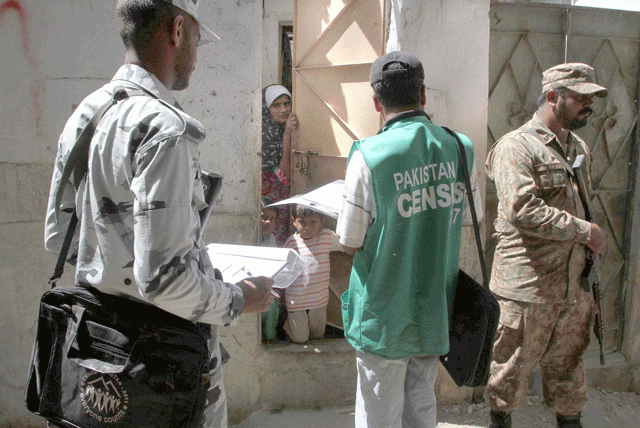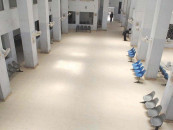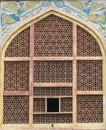Population census source of fear and hope for minorities
Pakistan is sixth most populous country in the world, with an estimated 200 million people

A census team in Karachi. PHOTO: EXPRESS / FILE
In the congested Lahore district of Youhanabad, the largest Christian neighbourhood in the country, activist Sajid Christopher says his community looks forward to standing up and being counted.
"The census will benefit us in two ways. Firstly we will be able to know about our exact population as so far there has been only guesswork," he told AFP. "Secondly, our representation in Parliament will be according to our population as our present representation in the democratic system is based on the census of 1981," he added.
Man arrested for obstructing, abusing census team
Fast-growing Pakistan is the sixth most populous country in the world, with an estimated 200 million people, but has not held a census for nearly two decades, despite a constitutional requirement for one every decade. The count was delayed for years by politicians squabbling over the potential implications.
Estimates are approximate and disputed, ranging from two to 10 million for Christians, and 2.5 to 4.5 million for Hindus. Christopher's views were echoed by Nancy Stiegler, an advisor for the UN Population Fund who called the census a "powerful tool for planning" not only for minorities, "but all the population of Pakistan".
This desire for more accurate data goes to the heart of the controversy surrounding the census: that it will redraw political boundaries and force a redistribution of resources. The process is not without complications -- and not all religious minorities are eager to make themselves known.
Ahmadis number an estimated 500,000 and are victims of persecution and violence. Citizens can declare themselves to be Muslim, Christian, Hindu, Ahmadi or "other". But Hindu rights activist Kapil Dev accused the government of divisiveness by having a caste option in the census, when the community believes it should be recorded as one entity, while the Sikh faith failed to make it onto the survey altogether.
Man arrested in capital for arguing with census team
Radesh Singh Tony went to court in Peshawar because there was no mention of Sikhism on the form. The court ruled in the activist's favour, ordering the government to include Sikhs -- but the count had already begun, and Radesh was not optimistic. "The government has a record of ignoring court orders," he told AFP.
And though Christopher was confident, many of his fellow Christians argued even if they are accurately counted it will change nothing until Pakistan's attitude towards non-Muslims improves. "Muslims can't see a Christian progress, get a good education and a good job -- this is a fact," said Pervaiz Jazbi, a 37-year-old Christian shopkeeper in Islamabad. "The element of discrimination is always there," agreed Christian student Sania Nishtar.



















COMMENTS
Comments are moderated and generally will be posted if they are on-topic and not abusive.
For more information, please see our Comments FAQ